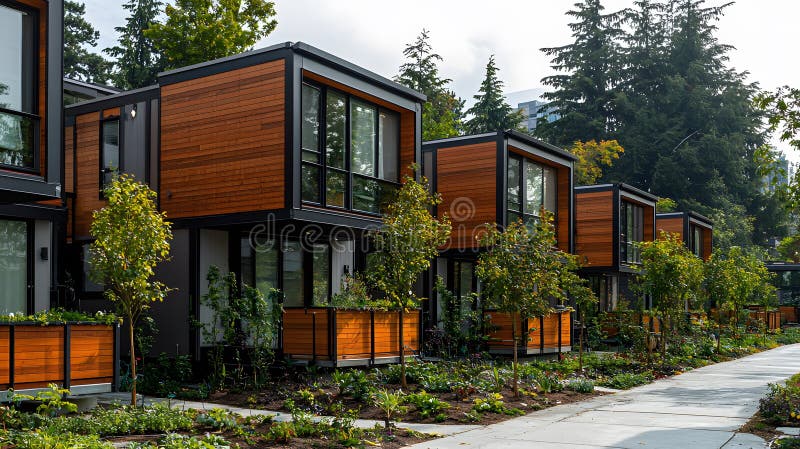
Eco-friendly modular homes: A Sustainable Choice for the Future
In recent years, the concept of eco-friendly modular homes has gained significant traction among home enthusiasts and environmentally-conscious individuals. These homes offer a sustainable solution to traditional housing, aligning with the growing demand for green living. By minimizing waste and using sustainable materials, modular homes reduce the carbon footprint significantly.

What are Eco-friendly Modular Homes?
Eco-friendly modular homes are prefabricated houses constructed in sections or modules. These modules are built in a factory setting, allowing for precise measurements and minimization of waste. Once completed, they are transported to the site and assembled. This method of construction not only reduces chemical emissions but also enhances energy efficiency. Learn more about the concept from this Wikipedia resource.
Key Characteristics of Eco-friendly Modular Homes
1. Sustainable Materials
The construction of these homes often involves the use of recycled or sustainable materials, contributing to their eco-friendly status. From bamboo flooring to recycled steel frames, the focus remains on minimizing environmental impact.
2. Energy Efficiency
One of the standout features of modular homes is their high level of energy efficiency. These homes often come equipped with energy-efficient windows, proper insulation, and sometimes even solar panels.
3. Cost-effective Construction
Despite their initial investment, eco-friendly modular homes tend to be more cost-effective in the long run. They require less energy to maintain, resulting in reduced utility bills.
4. Quick Assembly
The factory-built components of these homes are assembled quickly on-site, reducing construction time significantly. This quick assembly not only saves time but also minimizes the disturbance to the surrounding environment.
The Benefits of Eco-friendly Modular Homes
1. Environmental Impact
By significantly reducing construction waste and utilizing sustainable materials, these homes have a lower environmental impact compared to traditional housing options.
2. Customization and Flexibility
Modular homes offer a high degree of customization, allowing homeowners to tailor the design to their specific needs and preferences. This flexibility is particularly appealing to those looking for a unique living space.
3. Durability and Strength
Built to withstand transport from factory to site, modular homes are incredibly durable. This strength is maintained throughout their lifespan, making them a sound investment.
Eco-friendly Modular Homes Versus Traditional Housing
When comparing modular homes to traditional housing, several advantages become apparent. In terms of environmental impact, modular homes boast a significantly smaller carbon footprint due to their sustainable construction practices. Additionally, the energy efficiency of these homes results in lower lifetime utility costs.
Future of Eco-friendly Modular Homes
As demand for sustainable living continues to grow, the future of eco-friendly modular homes looks promising. These homes represent a harmonious blend of modern design, sustainability, and economic viability. To understand the future prospects of modular homes, read this informative article.
Conclusion
For those seeking a balance between sustainability and modern living, eco-friendly modular homes present a compelling option. By incorporating sustainable materials and energy-efficient technologies, these homes not only meet but often exceed current environmental standards.

FAQs
1. What is the lifespan of a modular home?
Modular homes are built to last, often matching or exceeding the lifespan of traditional homes, which can be several decades.
2. Are eco-friendly modular homes more expensive?
While the upfront cost may be higher, the long-term savings on energy and maintenance make them a cost-effective alternative.
3. Can modular homes be customized?
Yes, modular homes offer a high degree of customization, allowing homeowners to design a home that suits their specific needs.
For more insights on energy-efficient modular homes, you can visit Energy-Efficient Modular Homes. Also, explore options for Tiny Modular Homes and their benefits. To understand different styles, visit Modular Home Design. For more on technological integration, visit Smart Modular Homes.
This article contains affiliate links. We may earn a commission at no extra cost to you.